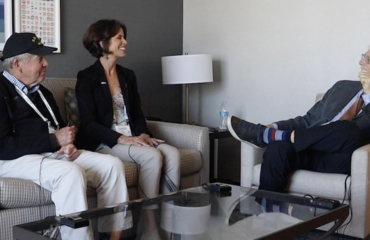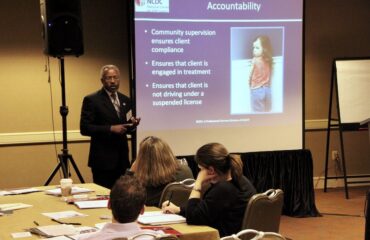Justice Speaks Podcast Episode #9
By: Hon. Peggy Fulton Hora (Ret.) and Deborah J. Chase, J.D., Ph.D.
There is a plethora of psychological information being used in family law cases, much without any solid scientific evidentiary basis. For instance, there is mandatory mediation in California if child custody is an issue most frequently conducted by M.S.W., M.F.T or Psy.D degree holders, most of whom have no real in-depth training in research analysis. In many California courts, after meeting with the parents (and sometimes, the child), they make recommendations to the judge “in the best interests of the child.”

Mediators in Family Law and Their Impact
In a vast majority of cases, the family law judge follows the recommendation of the mediators. Families who are having a particularly difficult time tend to be stigmatized as “high conflict families,” and the parents risk being labeled as “alienating,” or pathologized as having some sort of mental dysfunction such as borderline or narcissistic personality disorder. Although there is no known scientific basis for “Parent Alienation Syndrome (PAS)”, parents can actually lose custody of their children if they are perceived by a recommending mediator or child custody evaluator to be responsible for a child’s negative feelings about the other parent. There are, of course a myriad of possible reasons for these situations and the circumstances surrounding them. Yet parents are often threatened in custody matters for expressing highly critical views of the other parent to the child.
Challenging a Mediator
Parents in court are required to behave in ways that would never be required of parents in intact families, and probably do not represent societal norms. They are scrutinized through an extremely subjective process based largely on the untested opinions of whatever recommending mediator or child custody evaluator to whom they are assigned.
How does it happen that mediators are reporting PAS and judges are making custody decisions on that basis? There is no way to challenge a mediator’s or child custody evaluators recommendation, unless one of the parties has an attorney who is trained to do so through scientific cross-examination. Even then, most attorneys in family law are not well versed how to challenge the reliability of the underlying science.
Controversial Tests?

For instance, the MMPI, a standardized psychometric test of adult personality and psychopathology, was never designed nor validated for anything related to parenting, yet it often appears in child custody evaluations. When one of two good parents is moving away and the parties cannot figure out where the child should live, it is baffling to see how something like the MMPI could be useful. Some still use the Rorschach test which is highly controversial as being reliable for any purpose whatsoever. Furthermore, there is no workable process by which to test the expertise of the witness or limit the scope of their opinion. Unless a child custody evaluator does something egregiously unethical, they are rarely effectively challenged.
The manner in which psychology has come to be used in family law courts intimidates even attorneys, and renders the person appearing pro se or representing him- or herself in a divorce, as is the case 80-90% of the time in family law, virtually helpless.
Possible Solutions?
How do we solve the problem of poor science being used in family law cases, and judicial decisions that reflect the subjective opinions of non-law trained individuals? Unfortunately, it comes down to resources. Sufficient judicial resources are needed to conduct hearings where opinion evidence can be tested, and family law attorneys need significant training in the area of scientific evidence.
Get more articles like this
in your inbox
Subscribe to our mailing list and get the latest information and updates to your email inbox.
Thank you for subscribing.
Something went wrong.






